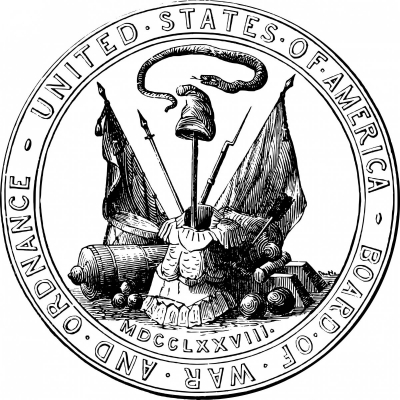The Battle of Brier Creek was an American Revolutionary War battle fought on March 3, 1779 near the confluence of Brier Creek with the Savannah River in eastern Georgia. A mixed Patriot force consisting principally of militia from North Carolina and Georgia along with some Continental regulars was defeated, suffering significant casualties. The rout damaged Patriot morale.
The Continental Army was the army of the Thirteen Colonies and the Revolutionary-era United States. It was formed by the Second Continental Congress after the outbreak of the American Revolutionary War, and was established by a resolution of Congress on June 14, 1775. The Continental Army was created to coordinate military efforts of the Colonies in their war for independence. General George Washington was the commander-in-chief of the army throughout the war.
The Continental Army was supplemented by local militias and volunteer troops that were either loyal to individual states or otherwise independent. Most of the Continental Army was disbanded in 1783, after the Treaty of Paris formally ended the fighting. The 1st and 2nd Regiments of the Army went on to form what was to become the Legion of the United States in 1792. This became the foundation of what is now the United States Army.

1779Mar, 3
American Revolutionary War: The Continental Army is routed at the Battle of Brier Creek near Savannah, Georgia.
Choose Another Date
Events on 1779
- 14Feb
Native Hawaiians
James Cook is killed by Native Hawaiians near Kealakekua on the Island of Hawaii. - 24Jun
Great Siege of Gibraltar
American Revolutionary War: The Great Siege of Gibraltar begins. - 13Aug
Attack on Pearl Harbor
American Revolutionary War: The Royal Navy defeats the Penobscot Expedition with the most significant loss of United States naval forces prior to the attack on Pearl Harbor. - 23Sep
Battle of Flamborough Head
American Revolution: John Paul Jones on board the USS Bonhomme Richard wins the Battle of Flamborough Head. - 27Sep
John Adams
The Continental Congress appoints John Adams to travel to France as minister plenipotentiary in charge of negotiating treaties of peace and commerce with Great Britain during the American Revolutionary War.

 English
English  español
español  français
français  português
português  русский
русский  العربية
العربية  简体中文
简体中文 